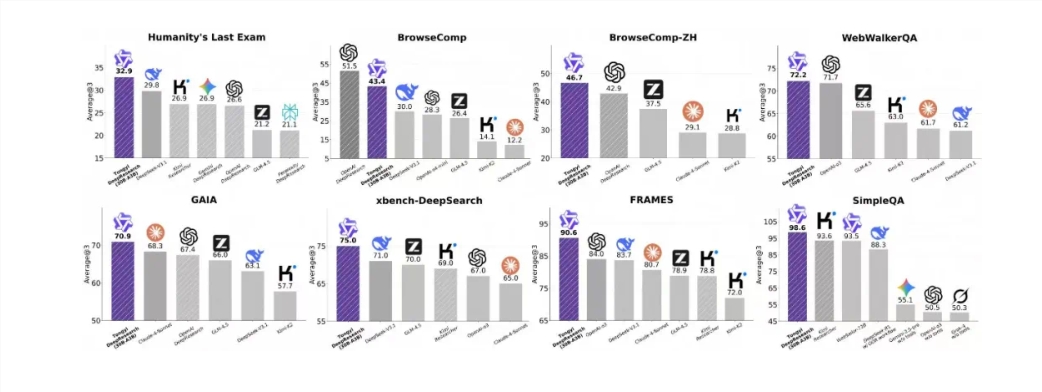Tongyi DeepResearch Launches Open-Source AI Model for Advanced Research
Tongyi DeepResearch Unveils Groundbreaking Open-Source AI Model
In a significant development for artificial intelligence research, the Tongyi DeepResearch team has launched a fully open-source AI model that sets new standards in academic and scientific research capabilities. This innovative system not only achieves state-of-the-art performance across multiple benchmarks but does so while maintaining complete transparency through its open-source approach.
Benchmark-Defining Performance
The Tongyi DeepResearch model has demonstrated superior capabilities in rigorous testing environments including Humanity's Last Exam, BrowseComp, and GAIA assessments. Particularly impressive is the performance of its lightweight 30B-A3B variant, which competes with - and often surpasses - many proprietary international models despite its more accessible architecture.

Innovative Research Methodology
The team has taken the unprecedented step of publishing their complete DeepResearch Agent methodology on GitHub, detailing everything from data synthesis techniques to reinforcement learning processes. This comprehensive documentation includes:
- Multi-stage data strategies eliminating need for costly manual annotations
- Incremental pre-training and post-training approaches
- Two distinct reasoning modes (basic ReAct and advanced Heavy mode)

Technical Breakthroughs
The model introduces several novel technical approaches:
- Advanced Reasoning Modes: Native ReAct configuration for general tasks combined with Heavy mode for complex research challenges
- Efficient Data Strategies: Generating high-quality training data without expensive annotation processes
- Optimized Reinforcement Learning: Precision signal matching algorithms that enhance learning efficiency

Global Impact of Open-Source Approach
The decision to fully open-source Tongyi DeepResearch represents a major shift in AI development philosophy:
- Democratizes access to cutting-edge research tools
- Encourages global collaboration and peer review
- Provides alternatives to expensive proprietary systems
The team's commitment to openness extends beyond just releasing code - they've shared detailed implementation guides, training methodologies, and optimization techniques rarely seen in commercial AI projects.
Key Points:
- State-of-the-art performance across multiple benchmark tests
- Complete open-source availability of model, framework, and solutions
- Innovative two-mode reasoning system for different complexity levels
- Cost-effective data strategies reducing reliance on manual annotation
- Global accessibility challenging proprietary AI model dominance